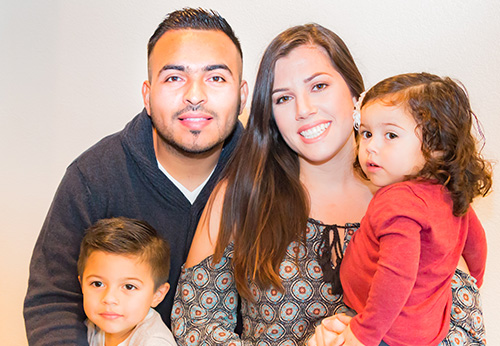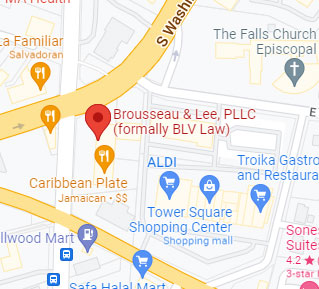Who Is Eligible To Apply For A Family-Based Visa? And What Does The Family-Based Visa Allow?
 Each year, many people are able to obtain a family-based visa. The process of obtaining this type of visa depends on the applicant’s relationship with the person sponsoring them.If the relationship qualifies for a petition and is classified as an immediate relative, then the visa is typically available immediately.
Each year, many people are able to obtain a family-based visa. The process of obtaining this type of visa depends on the applicant’s relationship with the person sponsoring them.If the relationship qualifies for a petition and is classified as an immediate relative, then the visa is typically available immediately.
If the relationship is classified as a family preference, then the applicant may have to wait depending on the category of the relationship.
If you want to become a legal U.S. resident, and entered the country illegally, there are two things you will need…
First, you need a visa petition from an immediate relative or a family preference that is current. Second, you need an unlawful presence waiver, which requires you to establish extreme hardship to a green card holder or a citizen parent or spouse.
Children of undocumented immigrants are not qualifying relatives for the unlawful presence waiver. So if you enter the country illegally and then have a child, your child eventually could file a visa petition for you when they turn 21, however, you would still need a different qualifying relative to be eligible for the unlawful presence waiver.
If you leave the United States without being granted an unlawful presence waiver, (which you can’t apply for if you don’t have a citizen or resident parent or spouse), you’ll trigger a 10-year bar and will have to apply for the waiver abroad during consular processing.
There are certain family preference visas that come with a few bars to getting a green card while inside the country, the most common being unauthorized employment. If you have a family preference visa, like a sibling of a U.S. citizen (which is the lowest preference), you may have to wait 12-13 years.
If you obtain a family preference visa following a lawful entry and then stay in the United States for years thereafter, you will not be able to adjust your status if you have been working illegally. However, if you enter the country on a travel visa and then get married to a U.S. citizen, you will be exempt from this rule.
The order of preference for immigration relationships is as follows: first (F1), unmarried children of U.S. citizens; second (F2A), spouses and children of lawful permanent residents; third (F2B), unmarried children of lawful permanent residents that are 21 or older; fourth (F3), married children of U.S. citizens; and lastly, (F4) siblings of a citizen.
There are different weight categories for visas, with some being more current than others.
In some countries like India, China, Mexico, and the Philippines, there are additional limitations due to the number of nationals from those countries who are already present. This can result in even longer waiting times beyond the normal visa processing times.
What Does A Sponsor Need To Do In Order To Start The Immigration Process?
If you want to begin the immigration process, the first step is to file a Form I-130,Petition for an Alien Relative. This can take up to twelve months to go through, so make sure you plan ahead.
To be eligible to receive an IV, the foreign citizen must also have a sponsor for an affidavit of support who is at least 21 years old and is a U.S. citizen.
More Information:
- The Extreme Hardship Waiver: What To Do When Going Back Home Isn’t An Option
- The Battered Spouse Waiver: What To Do If You’re A Survivor Of Marital Abuse
- The Good Faith Waiver: What To Do When You’re Going Through A Divorce
- Waiving The Joint Filing Requirement
- The Timeline Of Filing A Joint I-751 Petition
- The Effect Of Separation On A Joint I-751 Petition
- How To Prepare And File A Joint I-751
- Everything You Need To Know About The Joint I-751 Petition
- The General Process Of Filing For US Citizenship
- Introduction: Virginia Immigration Attorney James Brousseau
- Understand All Possible Sponsorships For Your Family-Based Visa Case
- Processing Timelines For Family-Based Visas
- Does My Deportation Case Determine My Fate In The United States?
- Taking Action On Your Deportation Case
- Can I Appeal A Denial Of A Petition For A Family-Based Visa?
- What Can Be Done To Stop My Family Member’s Removal Proceedings?
For more information on Immigration Law in Virginia, an initial consultation is your next best step. Get the information and legal answers you are seeking by calling (703) 249-9055 today.

Call Now To Schedule A Consultation (703) 249-9055
